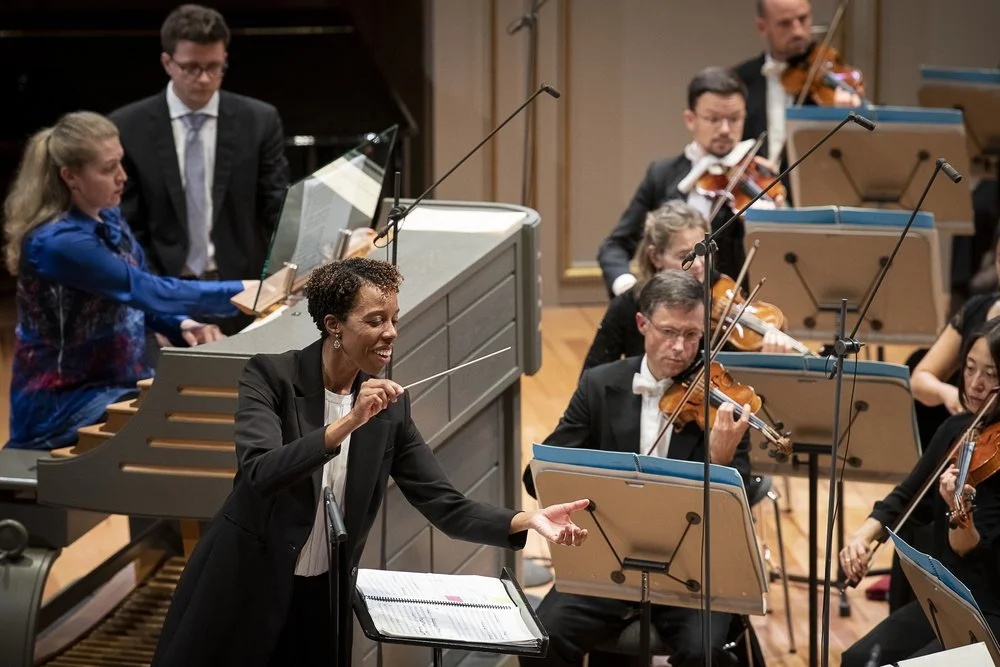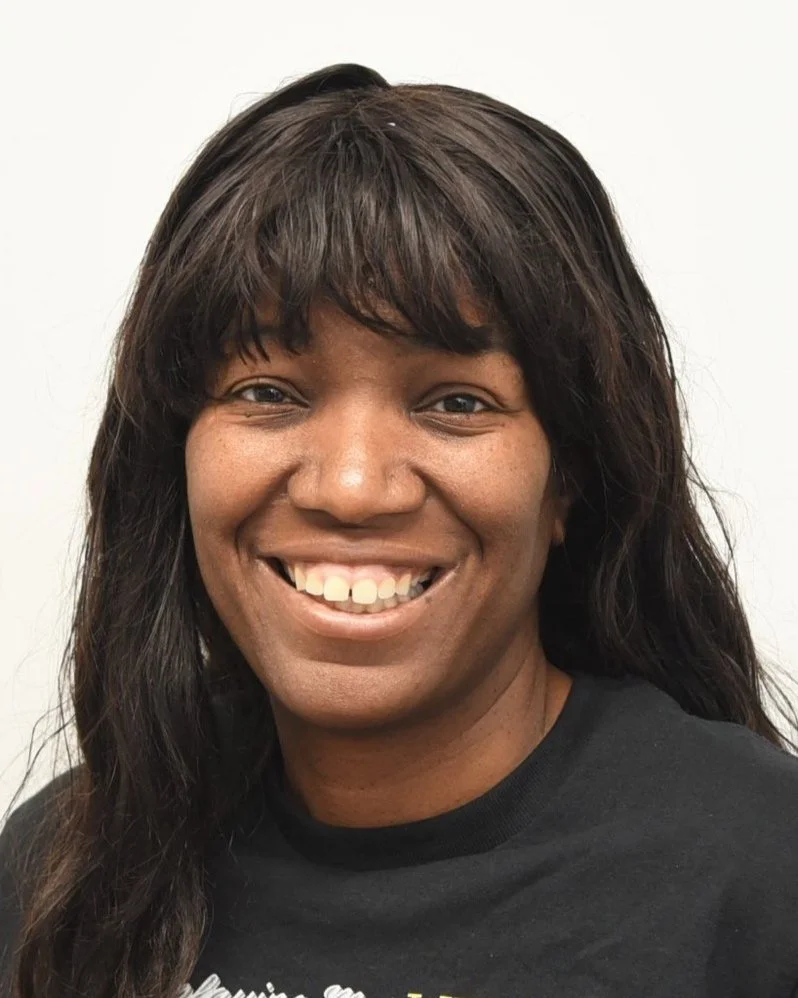Kalena Bovell is the first Black female Conductor in Canadian opera history
May 15, 2023
Classical music performers and audiences are mainly White.
Ross Manson, the founding Artistic Director of Volcano, a Toronto-based performance company, is attempting to change that narrative through the staging of composer/pianist Scott Joplin’s Treemonisha in Canada’s largest city next month.
It is one of the very few surviving live performance pieces about the immediate post-slavery era written by a Black person who lived through that period. Joplin died in 1917 before the groundbreaking opera was produced.
The reimagined version tells a revolutionary story of a young Black woman who, in discovering the truth of her past and overcoming enormous personal loss, finds her power to unify a divided people and lead her community towards a new future.
The first fully-staged professional production of Treemonisha in Canadian history comprises an all-Black cast and ensemble that includes Weyni Mengesha who is the Director and Los Angeles native Kalena Bovell who is the first Black female Conductor in Canadian opera history.
“To have that representation in Canada, I know, is huge,” said the Memphis Symphony Orchestra Assistant Conductor. “I don’t take that lightly and am very grateful for that opportunity. Representation matters and it means a lot to be given an opportunity through Treemonisha to bring that to a diverse audience so they can see themselves on that stage.”
Through Google, Manson found Bovell.
“Weyni and I have been trying to put this together for years and, very early on, we decided we wanted a Black woman to conduct this,” he said. “There were only a very few names that came up and Kalema was one. Both of the composers/arrangers, Jannina Norpoth and Jessie Montgomery, on the team had heard about her. When I googled Kalena, I found that she had just conducted the Chineke in London, England. I know that Jannina is a friend of the woman that founded that orchestra. So I went to Jannina and asked what is the skinny on Kalena and her reply was ‘she is great and the players love her’. It was apparent from the moment we started talking that she saw how important this show is and it meant a lot to her. She is such a good fit.”
Kalena Bovell is the first Black female Conductor in Canadian opera history (Photo contributed)
Manson contacted Bovell a year ago about conducting the extraordinary work that combines original source material from Joplin’s tragically overlooked opera with the artistry of leading Black artists working in Canada, the United and England.
Once she got a better idea of the project and learnt it involved an all-Black cast, she was sold.
“The fact that this is female-led and driven with the co-arrangers being women also meant this is something I could not turn down,” said Bovell who is also the Memphis Youth Symphony Conductor.
What can audiences expect?
“The story will be relatable and thought-provoking and I hope they theatre feeling a little bit more united, empowered and inspired,” said Bovell. “I hope people leave the theatre feeling how this pertains to their life and what they can do.”
Though classical music is White male-dominated, she said Volcano is on the right track to change that.
“It only takes one person to slowly start moving that needle,” Bovell pointed out. “When you look at what Volcano is doing, they are a collective that is trying to make that change. Often, you don’t see an all-Black production and ensemble. Sometimes, people are not interested in anything that is all-Black or all diverse. The way that we effect change is by bringing visibility to it in an authentic way and show other people that this is for them. We do that through education and outreach. I recently spoke to students, letting them know that this art form is for them. Some of the barriers also have to be removed. A lot of people don’t go to classical music operas because they think it is elitist and they can’t afford it. Most opera tickets range from $100 to $300.”
Conductors have their own style in keeping orchestras in time and together.
Bovell, who made her professional debut eight years ago as the Chicago Sinfonietta’s Assistant Conductor, describes hers as ‘very fluid and graceful’.
“I started out as a violinist and because of that, I tend to have a lot of horizontal motions,” she said. “My style is very in the music and representative of the music. When it comes to me as a person, what you get on the podium is what you get off it. It is about collaboration and communication with all of the musicians and people that are on stage. I take a humanistic approach and I am excited for people to see it.”
The product of immigrant parents from Panama, classical music was not on Bovell’s radar growing up.
“I honestly did not know that instruments of the string family existed,” she said. “I started playing in Grade 6 when the teacher asked what instrument I wanted to play. I said the flute because I didn’t know that the violin, cello and vielle were any of those things. What made it appealing to me back then was that it was something that was brand new and it piqued my curiosity. I think what makes classical music appealing to me now is just the various things you can do in the genre and the many stories you call tell like your own or bringing to life what the composer put on paper.”
Kalena Bovell received her first private lesson at age 18 (Photo contributed)
Self-taught in school for seven years, Bovell received her first private lesson at age 18.
To make up for the late entry, she worked six jobs to fund plane tickets, workshops and conducting lessons required to excel.
“My family didn’t know that if you had a child that was serious about an instrument or music, you looked into resources like private lessons, conservatories or afterschool programs,” noted Bovell who is the 2022-2024 Taki Alsop Conducting Fellowship Awardee. “My parents thought it was great I was doing it in school they provided an instrument. We didn’t know those other things. I kept going mainly because there was a student who lit a fire under me. When I was 11, that student told me I was a really good player, but I would never be good enough because I am not Asian. I started practicing a lot just to prove that student wrong. That was how I learnt.
“When I got to university, I was very behind because there were a lot of repertoires I had not played and change in music that I had never experienced. I listened to my colleagues warming up for the auditions and think I don’t play like them. A lot of my university experiences was me trying to catch up and, honestly, I don’t think I ever caught up because the violin always held this emotional baggage because of how behind I was. When I started conducting, I didn’t have to catch up to anything as it was just this brand-new thing I was learning from scratch.”
Bovell completed a Bachelor of Music Education at Chapman University College of the Performing Arts that recognized her with a Distinguished Alumna Award in 2021 and a Master of Music and Graduate Professional Diploma from the Hartt School.
As someone who enjoys all genres of music, including heavy and death metal and alternative rock, the former Civic Orchestra of New Haven Music Director refuses to be boxed into a group.
Bovell loves to describe herself as ‘a tattoo loving death metalhead who happens to conduct’.
“The reason I market myself like that is because classical music has this elitist connotation to it and I want to break down the barrier,” she said. “Often people see a classical conductor or musician and think they would not listen to anything other than classical. I do. I grew up listening to Anita Baker, Marvin Gaye, Patti LaBelle and Whitney Houston. That was what was played in my household. It was not until I was 11 years old that I said I am interested in this. As I have gotten older and my taste has evolved, I think it is important to be more than just your job. While I do love classical music, it is vital to expose myself to other art forms because those things inspire and influence what I do as a classical musician.”
In addition to classical music, Bovell relishes writing poetry and is a published author.
Her first book, ‘Dear Soul’, was released in 2009.
Battling depression for five years until age 24, she turned to poetry ‘to say the words that I could not say out loud verbally’.
“When I started writing, it was a way for me to feel better because I had all this anxiety, angst and emotional turmoil I was dealing with,” said Bovell who is working on a second book, ‘Controversy’. “About three years into the writing process, I realized that was a very selfish approach. I thought there were so many other people that are probably were dealing with the same thing who don’t have a voice and who think they are not allowed to have a voice. So I started writing from the perspective of being the voice for those people. For me, poetry was an outlet and it eventually became another form of creativity.”
The talented artist finds ways to weave poetry into her work as a Conductor.
“Sometimes I like to make up stories about the music I am working on,” said Bovell who held cover conducting roles with the St. Louis and Hartford Symphonies. “It could be a full narrative from beginning to end or just a narrative for a certain section. My poetry helps me to tap into different sides of my creativity.”
Presented by Luminato Festival Toronto and TO Live and produced in association with the Canadian Opera Company, Soulpepper and Moveable Beast, Treemonisha – which showcases the first all-Black orchestra in Canadian opera history -- will make its world premiere in Toronto from June 6 to 17 at the St. Lawrence Centre for the Arts Bluma Appel Theatre.
The musical has been in development for eight years.
Had it not been for COVID, the world premiere would have been in northern California in 2020.
“We had funding from a foundation in San Francisco and that demanded that the world premiere take place there,” said Manson. “Because of the pandemic, everyone relaxed their rules which was a good thing for us as it is much easier to open a show in your home city. That ended up being better for the show.”








